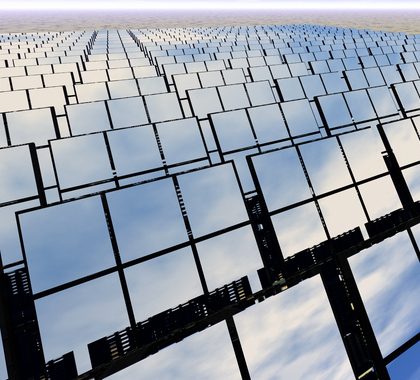President Donald Trump is imposing tariffs on imported solar panels and washing machines, in an effort he says is intended to safeguard domestic manufacturers and increase jobs in the United States.
Trump’s plan places a tariff of 20 percent on the first 1.2 million residential washing machines and parts imported annually, with the tariff rising to 50 percent on any imported machines and parts above that number over a three year period beginning January 22, when the tariff was imposed. Trump’s order applies a tariff to all imported solar cells and modules for the next four years, starting at 30 percent for the first year and declining to 15 percent in the final year.
Responding to Complaints
Trump’s action came after domestic solar manufacturers Suniva and SolarWorld America and washing machine manufacturer Whirlpool petitioned the administration for relief. The companies complained imports from overseas rivals, particularly manufacturers based in China and South Korea, jeopardize their companies’ survival. Suniva filed for bankruptcy protection in 2016.
Suniva and SolarWorld filed a petition for relief with the U.S. International Trade Commission (ITC) in 2017. On September 22, 2017, ITC ruled in favor of the companies, finding solar cells “are being imported into the United States in such increased quantities as to be a substantial cause of serious injury to the domestic industry.”
Instead of waiting for trade negotiators to act in response to the ITC’s ruling, Trump followed the recommendation of U.S. Trade Representative Robert Lighthizer and levied the tariffs under a provision of U.S. trade law authorizing the president to impose “safeguard” tariffs unilaterally.
“The president’s action makes clear that the Trump administration will always defend American workers, farmers, ranchers, and businesses,” Lighthizer said in a statement issued on January 22, the day Trump announced the action.
Mixed Reactions
Reactions to the tariffs have been mixed.
Whirlpool released a press statement lauding the decision. Suniva and SolarWorld America have taken a wait-and-see approach. Juergen Stein, president of SolarWorld America, says he hopes Trump’s action will reduce the influx of imported panels.
“We are still reviewing these remedies, and are hopeful they will be enough to address the import surge and to rebuild solar manufacturing in the United States,” said Stein in a statement.
The Solar Energy Industry Association (SEIA), a trade association representing the industry, said the tariffs could hurt consumers and the industry as a whole by raising prices and thus reducing sales of solar products.
SEIA estimates the tariffs could result in 23,000 U.S. installers, engineers, and project managers losing their jobs in 2018.
‘Cronyism’ on Top of Cronyism’
Robert L. Bradley Jr., CEO of the Institute for Energy Research, says the tariff is simply an additional layer of favoritism for the solar industry, which already benefits from subsidies and mandates.
“The tariff is cronyism on top of cronyism,” said Bradley. “The on-grid solar industry is a creature of special government favor in the first place, and this market intervention adds another notch of nonmarket signaling.”
Chris Talgo ([email protected]) is a marketing coordinator for The Heartland Institute.





